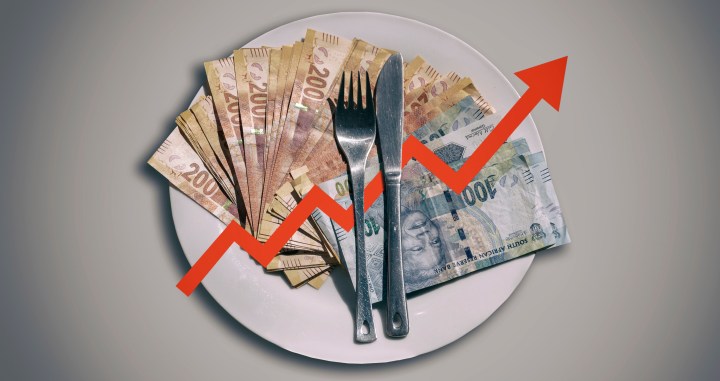COST OF LIVING OP-ED
South Africa’s consumer food inflation should continue to slow regardless of the renewed global risks

The products that could underpin the slowing food inflation trend will be similar to those in June. Notably, red meat prices, which have softened at the farm level, should continue on this trend at the retail level in the coming months.
While there are renewed risks in global agriculture, such as India’s ban on rice exports and the termination of the Black Sea Grain Initiative that facilitated grains and oilseeds exports from Ukraine, South Africa’s consumer food inflation should continue to slow during this second half of the year.
One of the key data releases this past week in South Africa was the inflation figures for June 2023, which continued to show a moderating picture. South Africa’s consumer price inflation was 5.4% in June 2023, down from 6.3% in May 2023.
If we zoom into food – one of the categories of the inflation basket which underpinned the increases we observed over the past month – its trend is also encouraging. For example, South Africa’s consumer food inflation slowed in June 2023, recorded at 11.1% from 12.0% in the previous month.
The product prices underpinning this deceleration are mainly bread and cereals, meat, fish, milk, eggs and cheese, as well as oils and fats.
While there are renewed risks in global agriculture, such as India’s ban on rice exports and the termination of the Black Sea Grain Deal Initiative that facilitated grains and oilseeds exports, I am still optimistic that South Africa’s consumer food inflation will continue to slow during this second half of the year.
The products that could underpin the slowing food inflation trend will be similar to those in June. Notably, red meat prices, which have softened at the farm level, should continue on this trend at the retail level in the coming months.
Fruit prices, although no longer in deflation, should remain affordable because of improved domestic supplies. The decline in “oils and fats” products is in line with a softening price trend we are seeing in the global environment, as South Africa still imports its palm oil usage. For example, in June 2023, the UN Food and Agricultural Organisation’s vegetable oil price index was at 117 points, down 22% year-on-year.
Bread and cereals risks
Admittedly, there are renewed risks on “bread and cereals” product prices. With South Africa importing a million tonnes of rice and similarly exposed to wheat imports, the disruption in trade of these commodities and the length of it could have implications on global prices and, ultimately, South Africa’s bread and cereals component of the food inflation basket.
Read more in Daily Maverick: At 5.4% in June, SA consumer inflation within Reserve Bank’s target range ahead of a rate decision
Still, we should not be alarmed; what is essential to monitor is the extent of price changes and their duration. So far, we have seen notable gains in international and domestic maize and wheat prices.
Whether these price gains are sustained will depend on the Black Sea Grain Initiative developments and India’s rice exports. Importantly, there is roughly a lag between three to five months between the price changes at farm and retail levels.
Hence, I expect the prices of grain-related products in the inflation basket to maintain a softening path regardless of the recent disruption in grain prices.
Beyond the global dynamics, South Africa has a favourable agricultural season. For example, the 2022/23 maize harvest is estimated at 16.4 million, 6% higher than the 2021/22 season’s harvest and the second-largest harvest on record. Soybean harvests could reach a record 2.8 million tonnes.
Be that as it may, the prices of these products are influenced by global developments as we are an open economy interlinked with world markets.
Other field crops and fruits also show prospects for a decent harvest this season. These increased supplies support the slowing food inflation view we expressed, along with the global agricultural prices which had declined notably in months before the termination of the Black Sea Grain Deal and India’s ban on rice exports, whose impact is yet to be fully seen.
For example, the UN Food and Agricultural Organisation’s Global Food Price Index, which measures changes in international agricultural prices, averaged 122.3 points in June 2023, down by 23% from its peak in March 2022. It will be helpful to monitor this index’s July 2023 reading.
Overall, the ban on rice exports and the non-renewal of the Black Sea grain deal present upside risks to food inflation, although these developments still don’t change our current optimistic view outlined in this piece. DM
Wandile Sihlobo, chief economist at the Agricultural Business Chamber of SA (Agbiz) and a senior lecturer at Stellenbosch University’s Department of Agricultural Economics, is the author of Finding Common Ground: Land, Equity, and Agriculture.


















 Become an Insider
Become an Insider
Comments - Please login in order to comment.